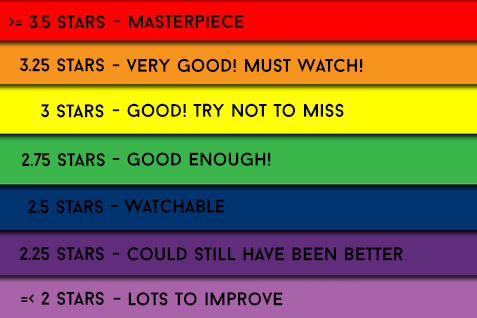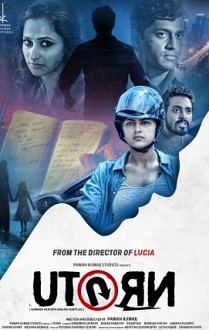LAW MOVIE REVIEW CLICK TO RATE THE MOVIE
'Law' is Kannada Film Industry’s first movie to skip the theatrical run, opting for a direct OTT release during the lockdown. The movie is produced by Power Star Puneeth Rajkumar under his banner PRK Productions, along with Ashwini Puneeth Rajkumar and M.Govinda. Directed by debutant Raghu Samarth, the movie has music by Vasuki Vaibhav and cinematography by Sugnaan. Is ‘Law’ the movie you can bank on for this weekend’s binge-watch? Read more to find out.
The movie opens on a lonely dark road, where an engaged couple tries to make-out. However, they get themselves in a tense situation as they spot a young lady running towards their car, seeking help. Taking her to the police station, they understand the girl was gang-raped by three unknown men.
‘Nandini’, the rape victim is a Lawyer who wants to seek justice for this brutal incident that happened to her. She lands in a huge tiff against some big names in the political arena, fighting for the truth. Does she or does she not get justice, forms the rest of the plot.
Although there is a decent amount of work done behind the storyline, the mediocre visuals and the weak screenplay make the final output of the movie an amateurish one. A few scenes are abruptly cut in the first half, which might definitely throw you off for a moment. Just when you think the plot is set for an intense thriller, there is a slight deviation.
The director seems to have used the cinematic liberty little overboard in the movie. In real-life, not very often you see a rape victim being treated like an accused in a police station. Not very often you see a police inspector objectifying women and joking about rape. Not very often you see a ‘Lady Cop’ laughing at such sexist jokes. Maybe, in a 90’s movie, all these would have been said in a funny way, but not anymore.
With some shocking experiences in the Police station, Nandini sees that there’s no way these cops are going to fight alongside her for the truth. Predictably, she takes her issue to the social front and the public fight alongside her. Although the concept is not so fresh, the protests have been picturized in a very apt way, using different angles. The cinematographer indeed deserves some credit for this. The aerial shots in the pre-climax too make it a pleasing watch.
Without many commercial elements, the movie delves around Nandini and the incidents that surround her. Just when you get inside the plot, there is a big reveal at the end of the first half that might give you some answers. Touted to be the USP’s of the movie, the intense courtroom scenes as seen from the trailer are a huge letdown. The interrogations and the revelations are not very engaging and the director has tried to induce a sense of comedy amidst the serious mood and it falls flat. Had there been more tension created in those face-offs inside the court, the movie would have ended on a high, during the big reveal.
On the acting front, Ragini Prajwal has done a decent job portraying ‘Nandini’. Krishna Hebbale, who plays the cop, deserves some special credit. His performance is a standout and the rest of the cast members have done justice to their parts, with limited screen presence. Senior actors Achyuth Kumar and Avinash have also portrayed their characters right.
Technically, the film might not be very engaging as it seemed from the trailer. The cuts are handled in a slightly inept way, lacking the intensities of a courtroom drama. When such a sensitive topic such as rape is addressed, had the writing been focussed more on the victim and her fight for justice rather than a few ‘non-police’ scenes in the first half, the overall movie watching experience would have ended on a better note. The music too does not leave a lasting impression throughout the movie.
Overlooking the few technical fLaws, the movie carried a message throughout - The victim can never be blamed for getting raped. Attire, lifestyle, and attitude of a woman does not mean she’s open to non-consensual physical intimacy.
LAW VIDEO REVIEW
BEHINDWOODS REVIEW BOARD RATING
PUBLIC REVIEW BOARD RATING
REVIEW RATING EXPLANATION




























